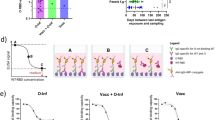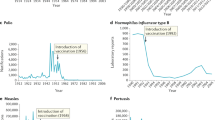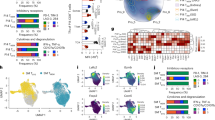Abstract
Toxicity associated with in vivo administration of adenovirus (Ad) vectors has been linked to activation of both innate and adaptive immune responses. Pre-existing immunity to the prevalent Ad serotypes, acquired by the majority of the human population as a result of natural infections, has the potential to modulate vector efficacy and safety. Previously, we evaluated some aspects of toxicity from systemic Ad vector in vector-naïve and pre-immunized rhesus monkeys. In this report, we summarize data from several studies analyzing toxic effects from systemically administered E1/E3-deleted Ad vector in vector-naïve and pre-immunized C57BL/6 mice. Our results indicate that pre-immunization can be associated with increased mortality shortly after systemic administration of Ad. Transient leukopenia and thrombocytopenia were observed early post vector infusion in both vector-naïve and pre-immunized animals. Pre-exposure to the vector did not prevent induction of pro-inflammatory cytokines; however, pre-immunized mice showed less tissue toxicity. Growth of bone marrow myeloid and erythroid progenitors was transiently inhibited in pre-immunized animals, but only the myeloid progenitors were affected in vector-naïve animals. In summary, pre-existing immunity to Ad vector substantially modifies host immune responses to systemic Ad vector.
This is a preview of subscription content, access via your institution
Access options
Subscribe to this journal
Receive 12 print issues and online access
$259.00 per year
only $21.58 per issue
Buy this article
- Purchase on Springer Link
- Instant access to full article PDF
Prices may be subject to local taxes which are calculated during checkout






Similar content being viewed by others
References
Crystal RG . Transfer of genes to humans: early lessons and obstacles to success. Science 1995; 270: 404–410.
Hackett NR, Crystal RG . Adenovirus vectors for gene therapy. In: Templeton NS, Lasic DD (eds). Gene Therapy: Therapeutic Mechanisms and Strategies. Marcel-Dekker, Inc.: New York, 2000.
Juillard V et al. Long-term humoral and cellular immunity induced by a single immunization with replication-defective adenovirus recombinant vector. Eur J Immunol 1995; 25: 3467–3473.
Yang Y, Li Q, Ertl HC, Wilson JM . Cellular and humoral immune responses to viral antigens create barriers to lung-directed gene therapy with recombinant adenoviruses. J Virol 1995; 69: 2004–2015.
Adesanya MR, Redman RS, Baum BJ, O'Connell BC . Immediate inflammatory responses to adenovirus-mediated gene transfer in rat salivary glands. Hum Gene Ther 1996; 7: 1085–1093.
Worgall S, Wolff G, Falck-Pedersen E, Crystal RG . Innate immune mechanisms dominate elimination of adenoviral vectors following in vivo administration. Hum Gene Ther 1997; 8: 37–44.
Jooss K, Ertl HC, Wilson JM . Cytotoxic T-lymphocyte target proteins and their major histocompatibility complex class I restriction in response to adenovirus vectors delivered to mouse liver. J Virol 1998; 72: 2945–2954.
Otake K, Ennist DL, Harrod K, Trapnell BC . Nonspecific inflammation inhibits adenovirus-mediated pulmonary gene transfer and expression independent of specific acquired immune responses. Hum Gene Ther 1998; 9: 2207–2222.
Muruve DA, Barnes MJ, Stillman IE, Libermann TA . Adenoviral gene therapy leads to rapid induction of multiple chemokines and acute neutrophil-dependent hepatic injury in vivo. Hum Gene Ther 1999; 10: 965–976.
Nunes FA, Furth EE, Wilson JM, Raper SE . Gene transfer into the liver of nonhuman primates with E1-deleted recombinant adenoviral vectors: safety of readministration. Hum Gene Ther 1999; 10: 2515–2526.
Driesse MJ et al. Intra-CSF administered recombinant adenovirus causes an immune response-mediated toxicity. Gene Therapy 2000; 7: 1401–1409.
Thomas CE et al. Acute direct adenoviral vector cytotoxicity and chronic, but not acute, inflammatory responses correlate with decreased vector-mediated transgene expression in the brain. Mol Ther 2001; 3: 36–46.
Chen Y, Yu DC, Charlton D, Henderson DR . Pre-existent adenovirus antibody inhibits systemic toxicity and antitumor activity of CN706 in the nude mouse LNCaP xenograft model: implications and proposals for human therapy. Hum Gene Ther 2000; 11: 1553–1567.
Zhang Y et al. Acute cytokine response to systemic adenoviral vectors in mice is mediated by dendritic cells and macrophages. Mol Ther 2001; 3: 697–707.
Schnell MA et al. Activation of innate immunity in nonhuman primates following intraportal administration of adenoviral vectors. Mol Ther 2001; 3: 708–722.
Varnavski AN et al. Preexisting immunity to adenovirus in rhesus monkeys fails to prevent vector-induced toxicity. J Virol 2002; 76: 5711–5719.
Horwitz MS . Adenoviruses. In: Howley PM (ed). Fields Virology. Lippincott-Raven: Philadelphia, 1996, pp 2149–2171.
Schmitz H, Wigand R, Heinrich W . Worldwide epidemiology of human adenovirus infections. Am J Epidemiol 1983; 117: 455–466.
Schulick AH et al. Established immunity precludes adenovirus-mediated gene transfer in rat carotid arteries. Potential for immunosuppression and vector engineering to overcome barriers of immunity. J Clin Invest 1997; 99: 209–219.
Chirmule N et al. Immune responses to adenovirus and adeno-associated virus in humans. Gene Therapy 1999; 6: 1574–1583.
Vlachaki M et al. Impact of preimmunization on adenoviral vector expression and toxicity in a subcutaneous mouse cancer model. Mol Ther 2002; 6: 342.
Li Q et al. Assessment of recombinant adenoviral vectors for hepatic gene therapy. Hum Gene Ther 1993; 4: 403–409.
Brody SL et al. Acute responses of non-human primates to airway delivery of an adenovirus vector containing the human cystic fibrosis transmembrane conductance regulator cDNA. Hum Gene Ther 1994; 5: 821–836.
Yang Y, Haecker SE, Su Q, Wilson JM . Immunology of gene therapy with adenoviral vectors in mouse skeletal muscle. Hum Mol Genet 1996; 5: 1703–1712.
Lozier JN, Metzger ME, Donahue RE, Morgan RA . Adenovirus-mediated expression of human coagulation factor IX in the rhesus macaque is associated with dose-limiting toxicity. Blood 1999; 94: 3968–3975.
Gao GP, Yang Y, Wilson JM . Biology of adenovirus vectors with E1 and E4 deletions for liver-directed gene therapy. J Virol 1996; 70: 8934–8943.
Croyle MA, Chirmule N, Zhang Y, Wilson JM . ‘Stealth’ adenoviruses blunt cell-mediated and humoral immune responses against the virus and allow for significant gene expression upon readministration in the lung. J Virol 2001; 75: 4792–4801.
Acknowledgements
We are grateful to the technical personnel of Animal Model, Vector, Cell Morphology and QC Cores of the University of Pennsylvania for assistance. This work was supported by the NIH (NIDDK P30 DK47757-09, NHLBI P01 HL59407-03), the Juvenile Diabetes Research Foundation, the Cystic Fibrosis Foundation and GlaxoSmithKline Pharmaceuticals. James M Wilson is an inventor on patents licensed to various commercial entities.
Author information
Authors and Affiliations
Rights and permissions
About this article
Cite this article
Varnavski, A., Calcedo, R., Bove, M. et al. Evaluation of toxicity from high-dose systemic administration of recombinant adenovirus vector in vector-naïve and pre-immunized mice. Gene Ther 12, 427–436 (2005). https://doi.org/10.1038/sj.gt.3302347
Received:
Accepted:
Published:
Issue Date:
DOI: https://doi.org/10.1038/sj.gt.3302347
Keywords
This article is cited by
-
Efficient prime editing in mouse brain, liver and heart with dual AAVs
Nature Biotechnology (2024)
-
Single-dose SARS-CoV-2 vaccinations with either BNT162b2 or AZD1222 induce disparate Th1 responses and IgA production
BMC Medicine (2022)
-
A systematic review of vaccine-induced thrombotic thrombocytopenia in individuals who received COVID-19 adenoviral-vector-based vaccines
Journal of Thrombosis and Thrombolysis (2022)
-
The Inflammatory and Fibrotic Patterns of Hepatic Stellate Cells Following Coagulation Factors (VII or X)-Shielded Adenovirus Infection
Current Microbiology (2021)
-
Untangling the Intricacies of Infection, Thrombosis, Vaccination, and Antiphospholipid Antibodies for COVID-19
SN Comprehensive Clinical Medicine (2021)



